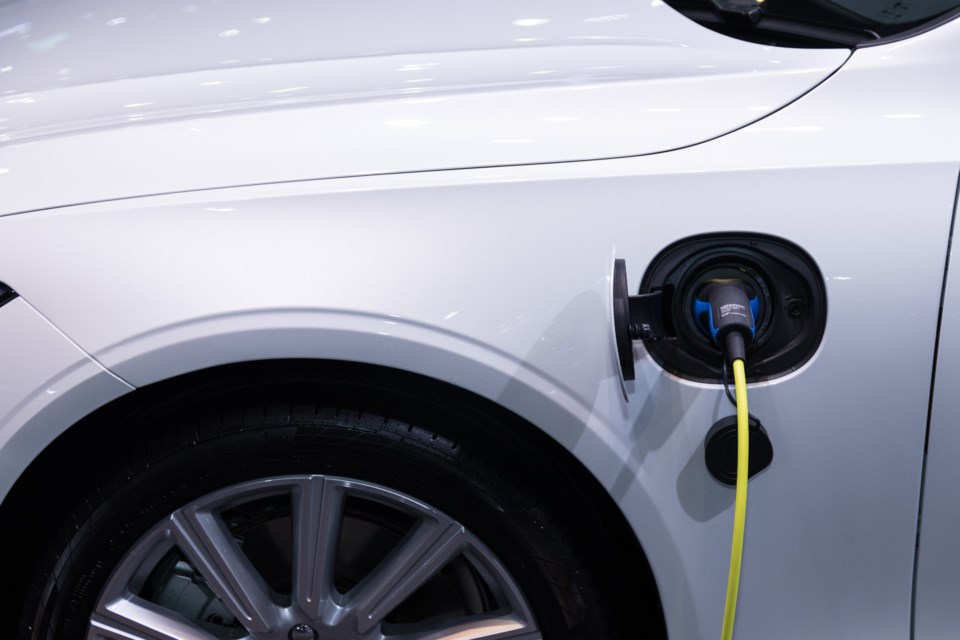This regular column on tips to live more sustainably comes from the 52 Weeks Climate Action Challenge. The challenge was created by Laurel Hood and Sherri Jackson. Hood is a retired Collingwood Collegiate Institute teacher, and Jackson is a writer and speaker, and ran as the Green Party’s candidate for the area in the last federal election. Both are climate activists.
*****
What’s your daily routine? How much of it involves driving? How did you get to work or school today? How about other members of your family? Did they drive or ride today as well? In our mostly rural area, odds are you drove or rode in a vehicle. And, likely, your journey was over five kilometres.
The average commute for Ontarians is 28.8 minutes, so if you’re driving the speed limit (like we talked about last week) people’s drive to work is closer to 40 km. No wonder passenger vehicle transportation has such a high carbon footprint.
It’s not the driving that’s so much the issue. It’s what we’re driving. Stating the obvious, internal combustion engines require fossil fuels. When fuels are burned, they convert that energy into mechanical energy to power the vehicle. The by-product of that combustion is carbon dioxide, and a host of nasty chemicals that cause air pollution.
Burning one litre of gasoline produces 2.3 kg of carbon dioxide. The average Canadian vehicle burns 2,000 litres of gasoline per year, meaning your car pumps 4,600 kg of carbon dioxide into the atmosphere every year. And so does mine. We’re not even talking about the massive carbon footprint of transportation vehicles this week. Let’s take it one step at a time.
If you think you’re doing the atmosphere a favour by purchasing biodiesel, think again. Regular diesel produces 2.66kg/L burned. Biodiesel (5 per cent) produces only slightly less, at 2.65kg/L, and 20 per cent biodiesel produces 2.62kg/L. Ethanol fares better, producing 1.61kg/L (at 85 per cent), and 2.21kg/L at 15 per cent.
What if you didn’t have to buy fuel at all?
"But I have to get to work," you say. I know! Me too! So what can we do? The future is an electric car. You may not want to hear that, but it’s a reality. Even Car and Driver says so.
Virtually every car manufacturer is producing electric vehicles now, and they’re invigorating the car industry. Anything from small compacts to heavy-duty trucks. The future is now, so climb on board the EV train. We’re test driving electric cars this week!
Challenge 47: Test drive an electric car.
Or sign up at Electric Autonomy Canada to learn more about the future of transportation.
A recent survey by KPMG showed that 7 in 10 Canadians intend to buy an electric vehicle within the next five years. Demand is extremely high, and manufacturers are responding to that need. A Hyundai Kona has a six to nine-month waiting list. So if you’re in the market in the next year, you should be looking now.
If having a cleaner planet and better air quality isn’t enough to get you to plug in, maybe the money angle will help.
Truth told, electric vehicles typically cost more than a gas vehicle. But that’s not the only factor you need to consider. EVs are much more cost-effective to run. Over the lifetime of your car, you could save upwards of $14,000 if you drive an EV versus a gas vehicle. If you’re charging at home, overnight, those numbers escalate substantially.
Then consider the maintenance aspect. Electric cars have fewer parts to break down, and fewer fluids to top up. They’re also easier on the brakes. Estimates are about $300 per year to maintain an electric vehicle, compared to over $1,000 to maintain a gas vehicle. Over a car’s lifetime, that’s a significant savings for you. It will more than make up for the cost of the charger you will need in your garage.
There are still incentives for purchasing electric vehicles, even though Ontario slammed the brakes on rebates in 2018. The federal government and many car companies are offering those rebates themselves, and financing options are attractive, making EVs not so much a science fiction fantasy but a regular, viable option whose time has come.



